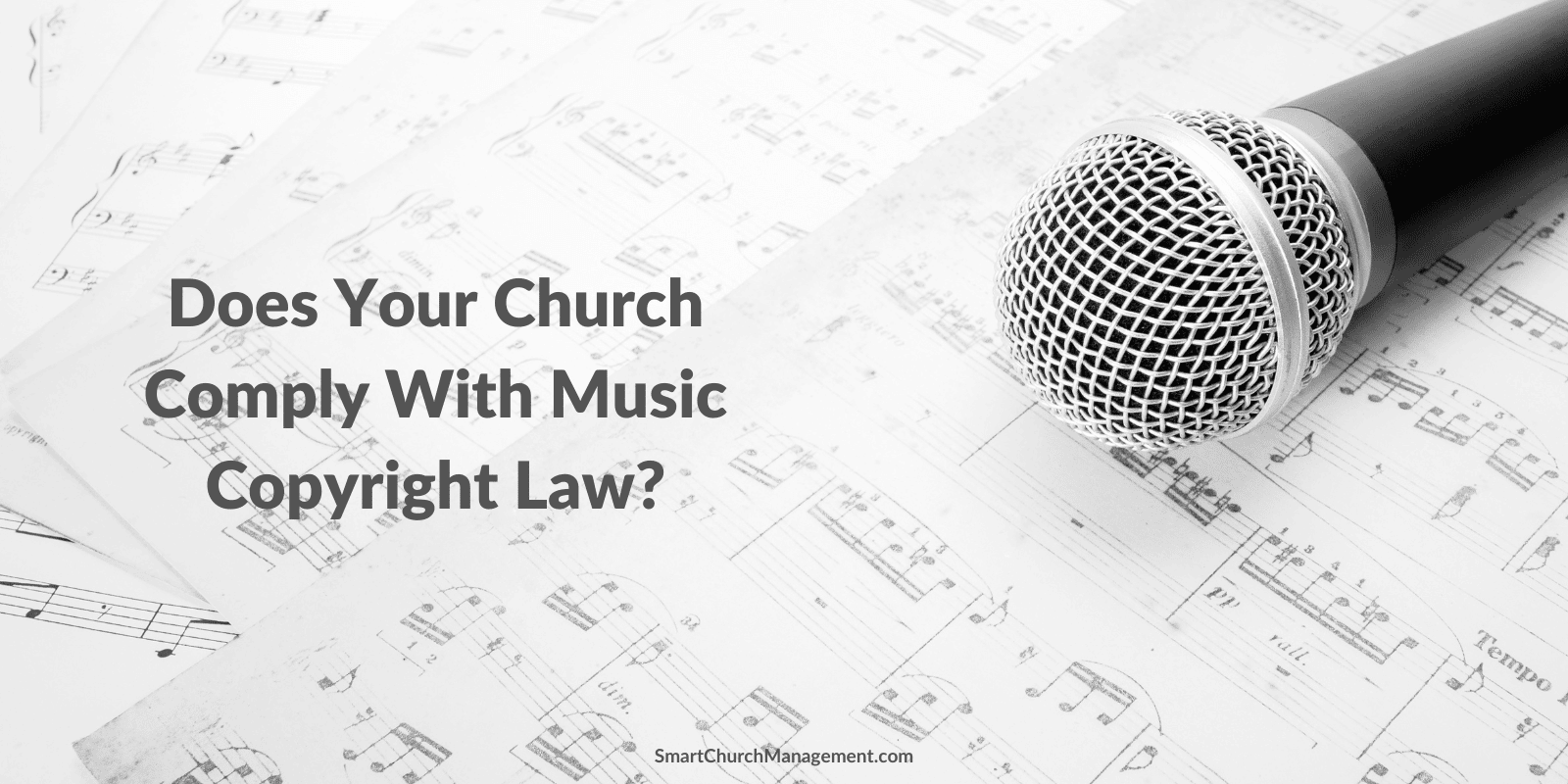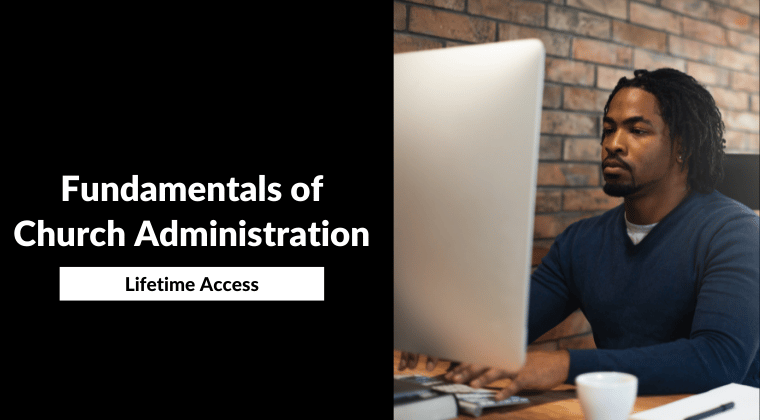Estimated reading time: 6 minutes
Churches exist to help, encourage, and develop people in their Christian walk. Who would ever think that churches need to comply with Music Copyright Law?
There is much more involved in overseeing a church than planning the weekly service. The behind-the-scenes detail would surprise most people.
Churches have systems and processes in place to help ensure the weekend goes off without a hitch. The end goal is to create a great environment for members, volunteers, and employees.
Detailed weekly planning is what creates great weekend services. However, there are things that need to be done behind the scenes to ensure that the church is acting in a legal and ethical manner.

Ignorance Is No Excuse
No one goes into ministry with the intention of breaking the law, but there are laws that churches must be aware of and adhere to.
For instance, there was a club in Texas that was sued by ASCAP for playing music without paying for it.
These examples of legal pushback should be a reminder for churches to make sure they are compliant with copyright law and to obtain the necessary permissions and licenses to use materials that someone else owns.
Organizations often make this costly mistake simply because they don’t know or understand the law as it pertains to copyrighted material.
No one wants to deal with a lawsuit and the first step in avoiding unnecessary litigation is to understand the law and why it exists.
What Is Copyright Law?
Copyright law is written to protect the intellectual property of creators of music, literary, dramatic, or artistic works to ensure they are fairly compensated for their works.
These laws cover most things that someone creates that come in the form of music, movies, images, books, plays, and more.
For instance, Smart Church Management has a copyright on content in the form of website articles, published books, and church administration training. We own the rights to those materials and if someone were to use our content without permission, that would be an infringement on our copyright.
Music Copyrights
“The Copyright Law of the United States, Title 17 USC, establishes property rights in musical works and grants creators and owners of copyrighted musical works several specific rights, including the exclusive right to perform or authorize the performance of their works publicly (17 U.S.C. 106(4)). This means that, generally, no one can publicly perform copyrighted works without the permission of the copyright owner, and, as is the case with other property rights, the owner has the right to be paid for the use of his property.”
Music And Churches Go Hand in Hand.
Churches can be particularly vulnerable to music copyright law since much of what churches do has a musical component.
Most churches incorporate music into their weekly services. Music is also used in video overlays and background music.
Whether that is playing music during church services, children’s programs, or video overlays – music is a big part of the church.
Be aware that your church needs permission to use that music.
Common Ways Organizations Infringe On Copyright
Playing Music – This one is tricky because churches can use copyrighted material during a live church service yet cannot use that same music in church dramas, plays, or hold music.
Rehearsals – Many churches use backing tracks for music rehearsals. These churches may also make a CD copy of the material to share with members of the worship team. This is not allowed under copyright law.
Distribution of lyrics and song sheets – Copying lyrics and distributing them to choir members is not allowed. Make sure you have purchased copies to distribute and get usage permission.
Playing Movies – It is common for churches to host events that show a movie. This is not allowed, and your church needs to get permission before showing a movie to the public, even if you purchase the video.
Images – Many churches purchase stock photo images. Make sure the license for those images covers all usage of that image.
Streaming Services – If your church streams services, make sure you have the appropriate licenses for any music, images, or other visual content used during that service.
How Can A Church Comply With Music Copyright Law?
It is relatively easy to comply with music copyright law. You don’t need to have a law degree, but you do need to be aware of the steps your church should take to be compliant.
The good news there are organizations that can help with that compliance.
It really is as easy as signing up for an ASCAP account.
Who is ASCAP?
ASCAP partners with Christian Copyright Solutions (CCS) to help churches and non-profit religious organizations comply with U.S. Copyright Law through simple, easy, one-stop annual performance licenses both for online and onsite music performance activities.
CSS is a leading authority on church music rights, providing performance licensing solutions that give churches the freedom to legally play, perform, and stream more than 28 million Christian, secular, and holiday songs across all genres.
There is a fee associated with licensing but this fee helps to ensure that the artists are compensated fairly.
ASCAP fees for churches are based on weekly attendance making it affordable for even the smallest churches.
What Happens If Our Church Uses Music Without Permission?
As demonstrated in the above example, fines for the use of copyrighted material without permission can be hefty.
Someone who infringes upon a creator’s rights can be fined from $500 to $20,000 per infringed work, even if the violation was unintentional. If an organization knowingly breaks the law, an additional $100,000 penalty can be added.
This reality makes it important to pay attention and follow the law.
What Do I Do If My Church Writes Music?
Many churches create music for their services. If your church is one of them, you can use the services of ASCAP to ensure that your music is part of their catalog and that your church is compensated for its use.
Churches are encouraged to comply with the law, not only to ensure that those people who give a part of themselves to music are fairly compensated for their efforts but also because it is the right thing to do.
If You Aren’t Sure, Always Get Legal Counsel
There is a saying that one would rather ask for forgiveness than ask for permission. Unfortunately, when it comes to copyright law, that assumption is not safe.
If you have any concerns, you should contact an attorney who specializes in copyright law and get a consult. It is always better to be sure. No church wants to partake in a legal battle.
Learn more about using copyrighted music here.
Does your church have licenses to play the music you use?



